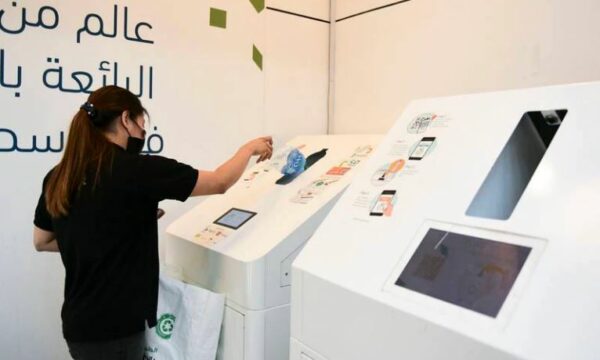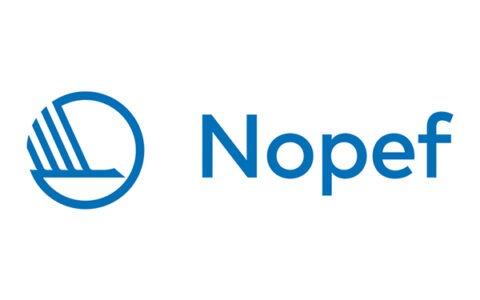19.10.2022 | Case | Nordic SME | Circular economy | Nigeria
A Norwegian company is creating one-stop shops for plastic recycling in Nigeria. These small units cost less than 1% of a typical facility and encourage local recycling.
Modern problems require modern solutions, so the saying goes, and Cycled Technologies, based out of Skien, Norway, has developed a modern solution to the problem of plastic waste.
Nigeria is a large country with a population of 200 million living in a varied landscape ranging from tropical rainforest to arid desert. Waste management logistics is tricky in such a diverse environment, and all too often post-consumer materials simply pile up unused. Cycled Technologies had the idea of decentralising recycling, so it approached Nopef, a fund managed by Nefco, for help.
“The philosophy of the company is to incentivise recycling,” explains CEO Thor Sverre Minnesjord. “We want to make recycling fun and rewarding for all participants in the chain.”
Nordic green solutions
Cycled Technologies was founded in 2018 by a cosmopolitan team. Its founders are from Norway, Germany, the Middle East and Nigeria, and the company participates in the recycling industries in Europe, the Middle East and Africa.
“Cycled Technologies has already achieved success by optimising the collection process of recyclable waste by connecting collectors and receivers of waste through its mobile application platform,” says Joakim Svahn, Investment Officer at Nefco. “They had an idea to build on their existing business with decentralised recycling units that would refine local plastic waste and turn it into finished products.”
Nopef was willing to fund a feasibility study for a demonstration recycling unit to encourage circular economy and sustainable business models. Nopef promotes the internationalisation of Nordic green solutions that contribute to positive impacts for both the economy and the environment.
We want to make recycling fun and rewarding for all participants in the chain.
Thor Sverre Minnesjord, CEO Cycled Technologies
Smaller is better
Cycled Technologies already collects, sorts and sells used plastic in Nigeria, but its idea was to recycle plastic itself and use it to manufacture new products, producing higher value plastic items such as roofing tiles, electrical wall sockets and wall clocks.
The cost to set up a typical PET recycling facility can be up to 10 million USD, which makes it difficult to access financing. Cycled Technologies wanted to create a smaller unit that fits in a standard shipping container. It would be a one-stop shop for sorting, shredding, injection and moulding. Each unit would be able to handle 100 kilograms of material per day and cost only 30,000 USD. As the units would be located closer to sources of material they would drastically shorten logistics lines, saving time and fuel.
“Today, we mainly live in a linear world which generates a huge amount of waste. We are exhausting the planet’s resources and this is not sustainable,” says Svahn. “Each time we use waste as an input for new production it replaces the need for virgin raw material, which is a win for the economy and the environment.”


Growing supply of plastic
“We verified the concept during the study,” Minnesjord continues. “We studied the market, checked the technologies, networked with possible partners, examined the business model and designed the process.”
Through the Nopef-funded feasibility study, Cycled Technologies concluded that its idea was viable, and it is now in the process of building a demonstration unit and studying potential products for manufacture.
The company currently has about five employees in Nigeria, and it also supports its microentrepreneur collectors. If everything goes well, Minnesjord hopes it will employ hundreds of people in the future.
“The process went well and I’m very happy with Nopef,” Minnesjord says. “Nopef can be a vital funding bridge between a project’s initial phase and maturity, when other funding bodies get involved. I have to give credit to them for supporting the project.”
Learn more about the Nopef application criteria and apply for funding
Text: David J. Cord